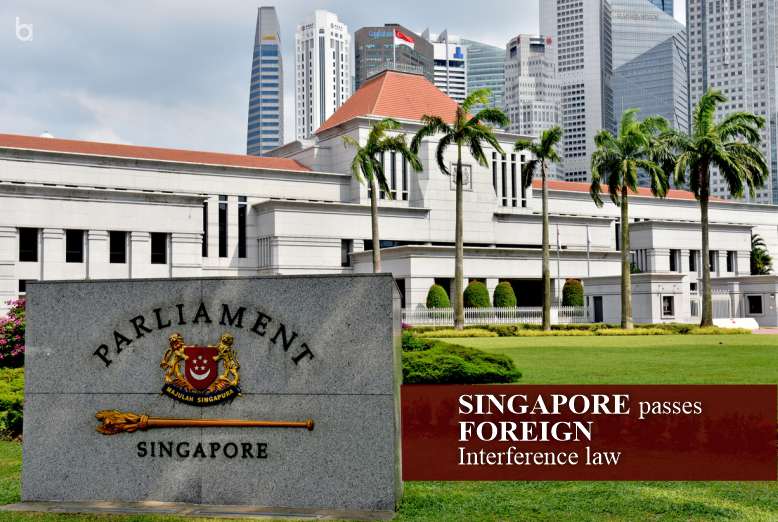Key Highlights:
- Singapore Parliament has passed a law that allows authorities to block internet content that they deem “hostile”
- FICA aims to reduce foreign interference in domestic politics by using hostile information campaigns and local proxies.
- The law also allows the government to request that platforms like Facebook and Twitter delete or limit functionalities that allow inappropriate information to spread.
Singapore passes controversial bill
Following a 10-hour debate in the Singapore Parliament, the Foreign Interference Countermeasures Act (FICA) was approved. The bill was introduced three years ago and was passed into law three weeks after it was tabled.
K. Shanmugam, Minister of Law and Home Affairs, stated, “This Bill is intended to address a serious threat to our national security and sovereignty. And it is important that Singaporeans continue to make our own decisions about how we should govern our country and live our lives.”
FICA aims to reduce foreign interference in domestic politics by using hostile information campaigns and local proxies. Several members of parliament expressed reservations and criticism throughout the discussion, but the ruling People’s Action Party’s supermajority vote allowed FICA to succeed.
The administration agreed to some suggested modifications to the law, which included expanding the definition of designated political people to include a member of the executive committee and requiring the disclosure of designations of politically significant individuals.
Additional clauses allowing for judicial appeals and the inclusion of more checks and balances were thrown down.
China primary cause for the new bill
This legislation has been in the works for some years. K. Shanmugam, the law and home affairs minister, stated in 2019 that new measures were needed to cope with a danger that was at times more serious than traditional military power.
While the Singapore government did not specifically name any nation or government attempting to meddle in Singapore’s domestic affairs, the Ministry of Home Affairs did highlight two recent examples of foreign intervention that mirrored occurrences involving alleged Chinese-linked operations. According to experts, numerous indicators point to China as the primary cause for Singapore enacting this rule, since China has been the most active country in the area in engaging in unfair and unlawful lobbying activities.
Minister Shanmugam added, “The bill will strengthen our ability to prevent, detect and disrupt foreign interference in our domestic politics conducted through hostile information campaigns and the use of local proxies”.
Law allows for limited functionalities
The law also allows the government to request that platforms like Facebook and Twitter delete or limit functionalities that allow inappropriate information to spread. The Singapore government has the authority to direct app distribution providers, such as the appropriate Apple or Google stores, to prevent applications used for foreign intervention from being downloaded in Singapore.
Furthermore, the government can issue a “technical assistance directive” to social media platforms to provide information linked to a post or an individual in order to assess if the damaging communications activity is being carried out by or on behalf of a foreign principal.
The ministry has the ability to prevent situations that lead to hazardous internet conduct.
Also Read: Australia is Considering Brand-new Laws to Tighten up Tech giants’ Digital Payment Services




















